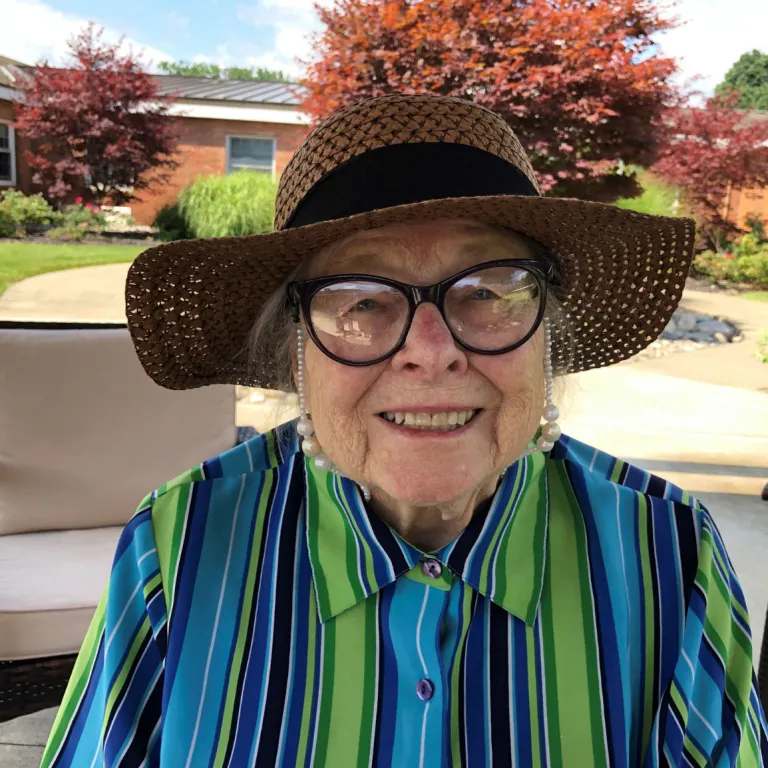
On any given summer day, residents all across the Kingsway Community campus can be seen enjoying the great outdoors. Some will be out sitting in the Kingsway Arms courtyard, some will be sipping lemonade or iced tea on the porch of Kingsway Manor, some will be playing mini golf outside the Kingsway Village Apartments, and others still may be out on a walk from Parkland Garden Apartments to the pond on the western edge of campus. While fresh air and a little exercise may be great for residents’ physical and mental health, sun and heat exposure can have several negative risks. The staff at Kingsway Community is always focused on making sure residents are protected from the elements whenever they’re outside, but everyone should know how to prevent sunburn, dehydration and heat stroke, especially among seniors.
Sunburn
Preventing sunburn seems pretty easy—just wear sunscreen, right? It may sound fairly obvious, but one study has shown that 1 in 10 older adults have been sunburned in the last year, and less than half of older adults protect their skin when outside for at least an hour on warm, sunny days. This is especially concerning, given the fact that most cases of skin cancer are found in people older than 65. In fact, rates of new melanoma cases increase steadily throughout one’s life, hitting a maximum at ages 80-84. Luckily, if sunscreen is your problem (it’s not exactly pleasant to put on, and needs to be reapplied regularly), you have other great options for protecting your skin when you’re out in the sun. For one, you can stay in the shade. Or, you can opt to cover your skin with cool clothing, such as a wide-brimmed hat, long shirts and long pants. If you’re fine with sunscreen, use a water-resistant one that has an SPF of 30 or above.
Dehydration
You probably know the antidote to dehydration…Drinking more water. But did you know that as people age, their feeling of thirst diminishes? It’s true—by the time a senior actually feels thirst, they are likely already somewhat dehydrated. Furthermore, seniors have less water in their bodies than children and younger adults, so they’re more susceptible to dehydration to begin with. So, how do you know when to drink fluids if you can’t count on your sense of thirst to tell you? The simple answer is that you should always be drinking fluids. You don’t need to force yourself to sit down and drink an eight-ounce glass of water eight times a day. Instead, keep a water bottle with you all day, and take small sips every few minutes. If plain water isn’t necessarily something you want to sip all day, every day, try flavored waters that are readily available at your local grocery store.
Heat Stroke
If you were hiking Mount Everest, you’d likely take every precaution to prevent hypothermia—the condition of having a dangerously low body temperature. But hyperthermia, or the condition of having a body temperature way above normal caused by being hot for too long, can also be a problem. Hyperthermia can cause heat syncope, a sudden dizziness; heat cramps, the painful tightening of muscles; heat edema, swelling in your ankles and feet; and heat exhaustion, a warning that your body can no longer keep itself cool. In extreme cases, that last one—heat exhaustion—can progress into heat stroke, which is a medical emergency. Signs of heat stroke, which is more common among older adults, include fainting, confusion, a body temperature of over 104 degrees, flushed skin, and rapid or slowed pulse. Obviously, hyperthermia and heat stroke are things you want to avoid at all costs. The best way to do that is to get out of the sun (and to an air-conditioned room, if possible) if you start to feel symptoms.